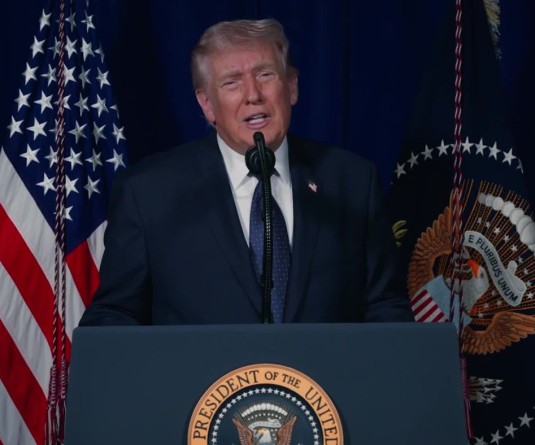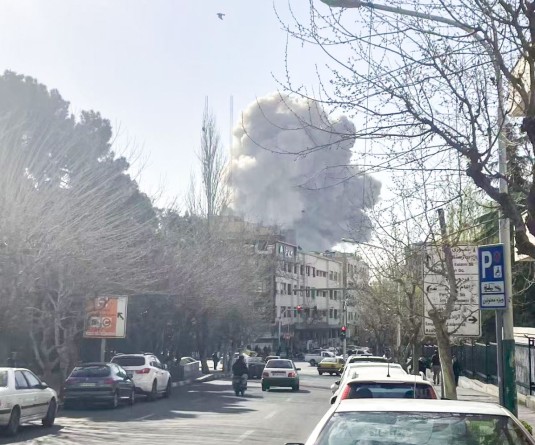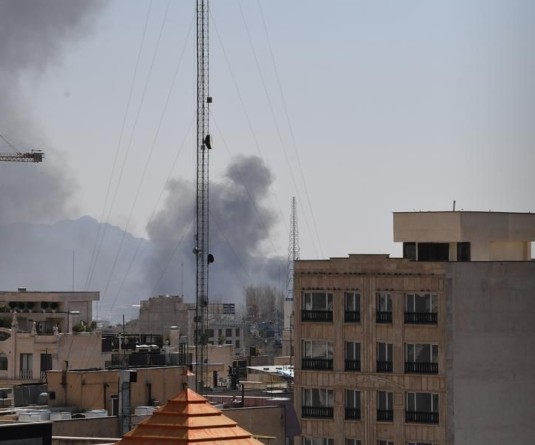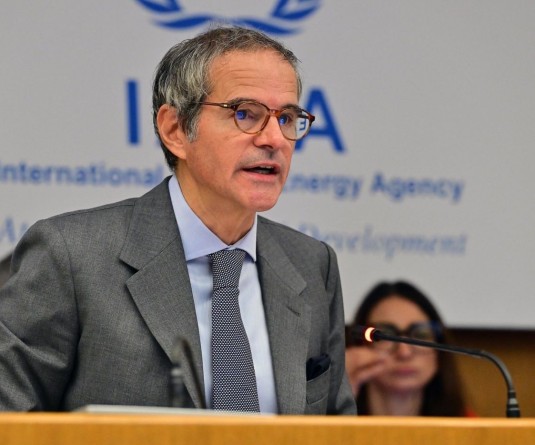
JAKARTA, May 8 (Reuters): Southeast Asian leaders failed to achieve any breakthrough Sunday to end deadly border skirmishes between Thailand and Cambodia that overshadowed a regional summit in Jakarta supposed to showcase progress toward economic integration.
The clashes around crumbling Hindu temples in disputed areas have starkly illustrated the tensions between countries in the Association of South East Asian Nations (ASEAN) that could derail plans to create a single economic community by 2015, and the apparent inability of the bloc to deal with disagreements. Indonesia, host of the 18th ASEAN summit, has been pressing for a deal that would prevent the meeting being marred by the border dispute. But in the end all that was achieved was a face-saving announcement that the Thai and Cambodian foreign ministers would stay an extra day in Jakarta for more talks.
"I'm coming here not to create a war of words," Cambodian Prime Minister Hun Sen told a news conference in which he announced the extra round of talks. The two sides have spoken plenty of times in recent weeks, but without finding a resolution to clashes that have killed 18 people since April.
ASEAN, a collection of authoritarian states and nascent democracies, has a policy of non-interference in each other's domestic affairs, and so has struggled to resolve the border dispute which -- although on the surface about ownership of some ancient temples -- is being driven by domestic political dynamics in both Thailand and Cambodia.
THAI ELECTIONS COMPLICATE DISPUTE
Thai Prime Minister Abhisit Vejjajiva told Reuters on the sidelines of the summit he will go to the polls on July 3. With elections approaching, the border issue is one which he can try to use to unite Thais behind him. He will certainly not be looking to make any concessions that would lose him votes. The party seen as the biggest rival of Abhisit's Democrats is Peua Thai, a political vehicle for exiled former Prime Minister Thaksin Shinawatra who has close ties with Hun Sen and was briefly even an official adviser to him.
Abhisit insisted that Thailand wanted peace and was not looking to score political points. "The ultimate objective must be to achieve lasting peace, so that both our peoples can live peacefully side-by-side along the Thai-Cambodian border," he said in a press briefing. But he laid the blame for the border tensions squarely on Cambodia, fuelling skepticism over whether the extra day of talks Monday will achieve anything.
Other ASEAN nations were not happy with the tension. "It is very important that we hold together," Indonesian President Susilo Bambang Yudhoyono told the region's leaders at the summit, adding the group faced enormous challenges. "They need to ponder how badly the ill will generated would impede ASEAN collaboration on projects... An ASEAN disunited will be taken less seriously by investors," said Singapore's state-controlled Straits Times newspaper in an editorial.
The clashes around crumbling Hindu temples in disputed areas have starkly illustrated the tensions between countries in the Association of South East Asian Nations (ASEAN) that could derail plans to create a single economic community by 2015, and the apparent inability of the bloc to deal with disagreements. Indonesia, host of the 18th ASEAN summit, has been pressing for a deal that would prevent the meeting being marred by the border dispute. But in the end all that was achieved was a face-saving announcement that the Thai and Cambodian foreign ministers would stay an extra day in Jakarta for more talks.
"I'm coming here not to create a war of words," Cambodian Prime Minister Hun Sen told a news conference in which he announced the extra round of talks. The two sides have spoken plenty of times in recent weeks, but without finding a resolution to clashes that have killed 18 people since April.
ASEAN, a collection of authoritarian states and nascent democracies, has a policy of non-interference in each other's domestic affairs, and so has struggled to resolve the border dispute which -- although on the surface about ownership of some ancient temples -- is being driven by domestic political dynamics in both Thailand and Cambodia.
THAI ELECTIONS COMPLICATE DISPUTE
Thai Prime Minister Abhisit Vejjajiva told Reuters on the sidelines of the summit he will go to the polls on July 3. With elections approaching, the border issue is one which he can try to use to unite Thais behind him. He will certainly not be looking to make any concessions that would lose him votes. The party seen as the biggest rival of Abhisit's Democrats is Peua Thai, a political vehicle for exiled former Prime Minister Thaksin Shinawatra who has close ties with Hun Sen and was briefly even an official adviser to him.
Abhisit insisted that Thailand wanted peace and was not looking to score political points. "The ultimate objective must be to achieve lasting peace, so that both our peoples can live peacefully side-by-side along the Thai-Cambodian border," he said in a press briefing. But he laid the blame for the border tensions squarely on Cambodia, fuelling skepticism over whether the extra day of talks Monday will achieve anything.
Other ASEAN nations were not happy with the tension. "It is very important that we hold together," Indonesian President Susilo Bambang Yudhoyono told the region's leaders at the summit, adding the group faced enormous challenges. "They need to ponder how badly the ill will generated would impede ASEAN collaboration on projects... An ASEAN disunited will be taken less seriously by investors," said Singapore's state-controlled Straits Times newspaper in an editorial.






